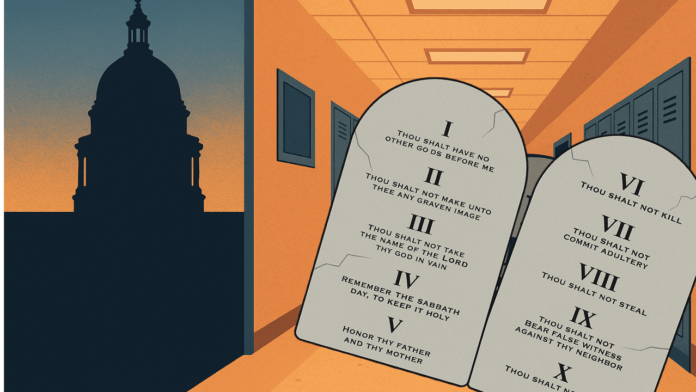Texas Attorney General Files Lawsuit Against Galveston ISD
Texas Attorney General Ken Paxton has filed a lawsuit against Galveston Independent School District (ISD) for not displaying the Ten Commandments in classrooms, as mandated by the recently passed yet contested Senate Bill 10. The legal action, announced on November 7, 2025, follows Galveston ISD’s decision to delay implementation of the law, citing ongoing litigation and a recent federal court ruling. Previously in June, a similar law in Louisiana was struck down in federal court the same month Texas passed its own version in Senate Bill 10.
Background: Senate Bill 10 and Legal Challenges
Senate Bill 10, passed earlier this year, requires all Texas public schools to display a copy of the Ten Commandments in every classroom. The law has faced significant legal opposition, with a federal judge barring 11 school districts who filed suit against the state from enforcing the mandate. Galveston ISD referenced this ongoing litigation as the reason for its delay in compliance.
Paxton’s Position: “America is a Christian nation”
Attorney General Paxton has been vocal in his support for the law. In a statement from his office regarding the lawsuit, Paxton said, “America is a Christian nation, and it is imperative that we display the very values and timeless truths that have historically guided the success of our country” and added, “There is no valid legal basis to prevent Texas schools from honoring a foundational framework of our laws, especially under the misconception that a ‘separation of church and state’ phrase appears in the Constitution. it does not.” Paxton’s office argues that the Ten Commandments represent a historical and legal foundation for the country and that schools should be allowed to display them.
Paxton’s claims however are simply not true, as any objective assessment of the history of the founding of the United States makes it clear the founders expressly designed the US government to be entirely secular in nature.
Galveston ISD has taken a cautious approach in response to the new law and the attorney general’s lawsuit. A spokesperson for the district stated, “We will closely monitor any possible litigation and consult with our legal counsel before making further decisions.“ The district’s decision to delay implementation reflects concerns about the ongoing federal court proceedings and the potential for further legal complications.
The legal landscape surrounding Senate Bill 10 makes it unlikely that it will survive the federal court system which has ubiquitously struck down laws designed to force religious literature into public school curriculum.

